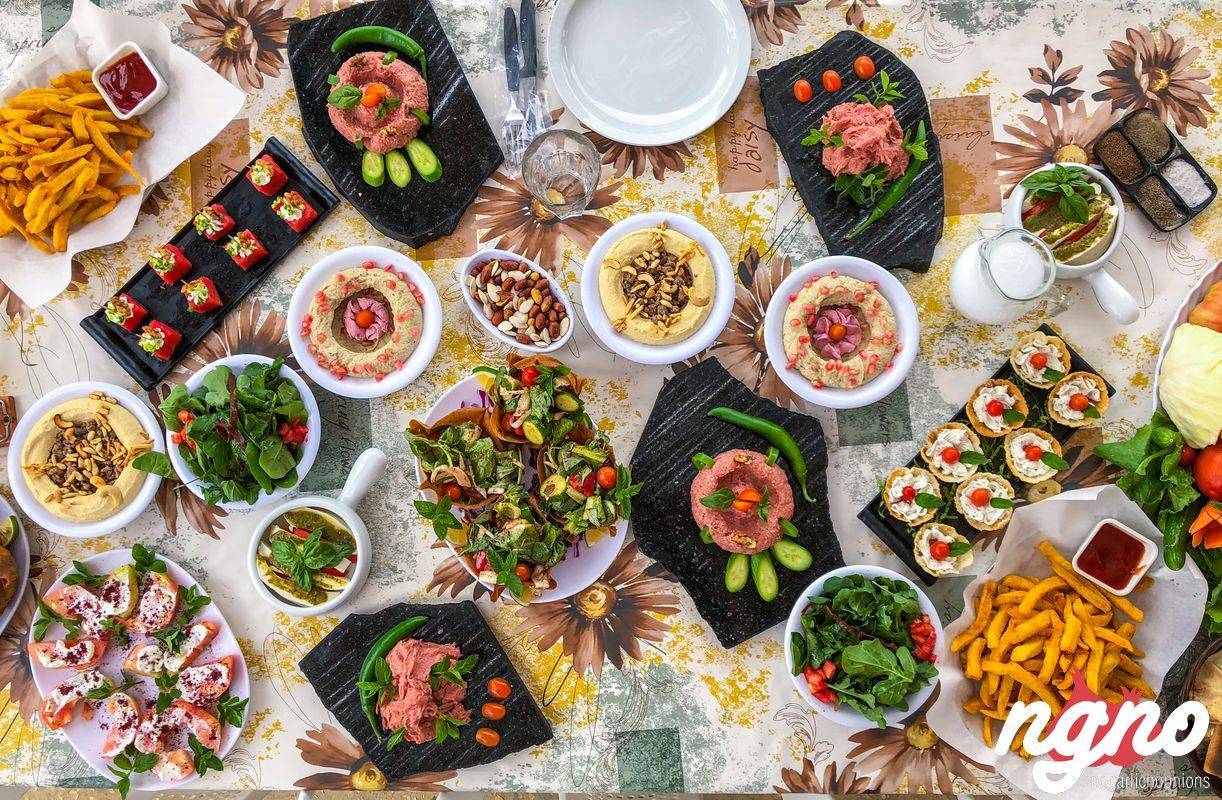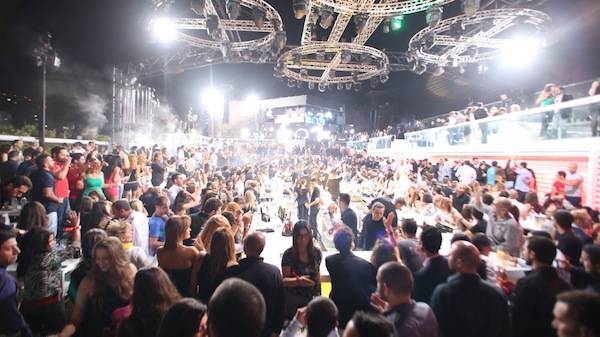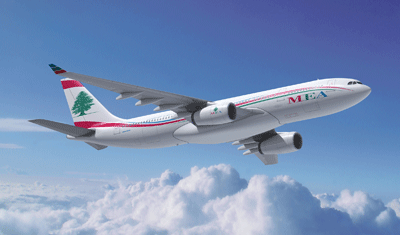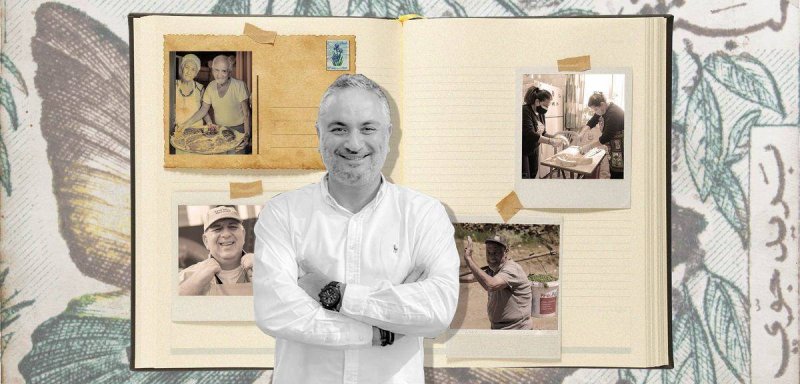Arab countries are competing in misery. Morocco is trying to catch up with Tunisia, but “el khadra” seems to be even more unhappy, preceding it by twenty ranks of the unhappiness scale.
Even Egypt is miserable, according to the recently published UN 2022 World Happiness Report. Egyptians ranked number eighteen on the scale of world’s least happy nations, preceded by the Yemenis, Mauritanians, and Jordanians, leaving the lead to Lebanon, according to the report.
In less than three years, things took a turn for the worse for the people of Lebanon — the same people known for their passion for life and love of food, travel, style, and nightlife, and who are famous for their generosity, joy, and creativity in every field.
It is not surprising that the Lebanese people are ranked at the bottom of the happiness index with only Afghans less happy, it is the most unhappy place in the Arab world. It is an expected and justified outcome, given the calamities that have befallen the Lebanese people over the past few years: a financial collapse considered to be one of the worst in history and that has destroyed the national currency and the people’s savings, unprecedented high costs and rise in prices, a steady increase in the poverty rate, and on top of it all, an explosion that rocked the heart of the capital and robbed it of its steady pulse.
The simplest things that used to make the people of Lebanon happy are now gone, or at least are no longer accessible to the vast majority of the Lebanese people.
Without the Sunday fiestas, the clubbing, luxury travel and shopping sprees, the Lebanese’ life has been turned upside down, all compliments of a bankrupt state and an explosion that tore the fabric of Beirut.
Five things that made the people of Lebanon happy
1- A Banquet-like Dining Table
That is, a fully kitted dining table that begins with tabbouleh, hummus, and every kind of appetizer, and goes on to include grilled meat, kibbeh, and chicken... The Lebanese “sofrah” (dinner table) that used to be spread out from one side of the house to the other is now in danger of disappearing due to the insane rise in food prices, from vegetables and grains to different kinds of meat and fruits.

2- The “Kazdoura”
That is, a car ride or trip that we know when it starts but not when it’ll end. For instance, stops in the charming villages and regions of Lebanon, trips and visits to friends and relatives, or maybe just a long car ride just for fun.
The “kazdoura” is a word that has almost disappeared from the Lebanese dictionary due to the high prices of gasoline, which has seen a fifteen-fold increase in cost from its price before the crisis began.

3- Nightlife
The people of Lebanon rarely wait for the weekend to get dressed up and go out to spend their evenings in restaurants, nightclubs, theaters, or cafes. This almost daily ritual in the small Mediterranean country has become difficult to revive for several reasons, including the rise in prices, the closure of many establishments in the face of the economic collapse, and the Port of Beirut blast. Let’s not forget that friends’ gatherings have become incomplete after many left the country to emigrate.

4- Shopping
The relationship between the Lebanese people and shopping is something like an addiction. Before the crisis, visiting shops and malls to buy a new shirt, a designer bag, or a piece of furniture for the house was an almost weekly habit. Today, just visiting the supermarket to buy milk, laundry detergent, and other daily necessities has become something of a horror movie because of the raging prices.

5- Travel
In the years prior to the crisis, with every Eid and summer holiday approaching, travel agency ads used to fill the streets and social media pages. From those headed for nearby destinations, such as Turkey, Cyprus, and Georgia, to those farther away, such as western European countries or the Pacific Islands, Lebanese people used to plan their trips, each according to his or her own abilities.
Since travel requires dollar bills — which is currently quite the elusive currency for the people of Lebanon — in addition to Lebanese credit cards no longer working abroad, travel has become a faraway dream for the majority of Lebanese people.

Anthony Rahayel counters unhappiness
Not everyone agrees with the ranking issued by the United Nations report. Some object by saying that what we see on social media pages, particularly Instagram, suggests that Lebanese people have not changed anything about their habits; “A crazy nightlife here in the city”, “A new restaurant opens every day”, and “Everyone is wearing the nicest clothes and outfits”... Others reply that what we are seeing online reflects the lifestyle of just 10 percent of Lebanese society, no more.
For his part, Anthony Rahayel objects to the official UN ranking. Anthony, who is known as ‘No Garlic No Onions’ on YouTube and Instagram, is a major influencer in the food and domestic tourism industries. He doesn’t present a single picture, video, or tv show episode, without shining a light on the bright side of Lebanon. He has created heroes through his page: Krikor, an eighty year old manakish baker and owner of the Krikor Bakery, and Abou Shadi, now dubbed “the king of foul and hummus” after he wasn’t even known on social media. These two men, along with other craftsmen, welders, and housewives who have managed to transform their kitchens into small restaurants, are all “Anthony’s heroes”.
“I wanted to search for those who do not have a voice so that I could help my country and its people in my own way,” Anthony tells Raseef22. He adds, “I opened my pages to them and let them market their products and businesses without expecting anything in return, since they are people who have neither the capabilities needed nor the marketing expertise. My sole desire was to leave behind a documented legacy on these craftsmen, restaurant and small business owners, or even the humble olive farmer and bell maker, as well as others who became famous through my platform. Some of them are no longer with us today.”
Anthony has created heroes: Krikor, an 80 year old manakish baker, and Abou Shadi, known as “The Foul Man” on social media. They, along with other craftsmen and housewives who transformed their kitchens into small restaurants, are all “Anthony’s heroes”
Anthony criticizes Lebanon’s rank as second least happy country, rejecting this ranking and placing the blame on the media that markets this unhappiness, “I believe in marketing and advertising happiness and the beauty of Lebanon away from all that is negative.” The founder of NGNO acknowledges that the current situation is an exceptional one and may carry on for a while. He can even sense the people’s suffering during his travels in Lebanese villages from the far south to the far north on a daily basis, but he insists on his saying: “The most beautiful country in the world never dies.”
The happiest man in Lebanon
Anthony Rahayel left everything behind and followed his love for Lebanon. He turned from a regular practicing dentist into the man he is today. He says that he went from healing dental pain to healing the country in his own way. After nine years of practicing the profession, he set the title of “doctor” aside, and picked up the camera to photograph “the most beautiful country in the world”. And now as his journey reaches its tenth year, it is expanding to a number of countries such as the UAE, Egypt, Iraq, Jordan, and France.
Anthony rejects the accusation that states he is detached from reality, responding with the statement that he is dealing with it pragmatically, “Every hardship and adversity has an end. I did not once feel like what I was presenting no longer had a place in light of the crisis, because I knew how to adapt to the situation. The secret word here is ‘adapting’, along with not giving up or letting the negativity overcome us. For example, I do not watch or follow any political news, and I try to see the glass as half full.” He goes on to say, “We don’t have to go out every night, and we don’t have to eat meat every day... Instead of each person going to work in his own car, we can make a group, go together, and share the cost of gasoline!”
Five facts from Anthony Rahayel to regain a happiness
1- More than 250 Lebanese factories have been opened since the start of the crisis
2- The export of Lebanese products increased
3- The local products industry has flourished as opposed to imported products
4- The plots of land adjacent to houses, which had been previously neglected and abandoned are now planted
5- Healthy, homemade food has become a valued substitute to processed and unhealthy food
His daily encounters with landowners, peasants, farmers, and every simple craftsman or chef who was able to achieve success and victory through passion and perseverance, may have added positiveness to Anthony’s existing positivity, thus earning him the title of “happiest man in Lebanon”. Commenting on the title, he says, “Despite everything we’re going through, I make sure to meet people with a smile and with positivity. I don’t care about the number of followers, or the number of views and likes — and this is clear through my page — as much as I care about real interaction with people and the actual ability to support them. To watch them succeed with my help or have their sales increase, this is what makes me the happiest.”
After nine years of practicing the profession, Anthony Rehayel set the title of “doctor” aside, and picked up the camera to photograph “the most beautiful country in the world”
Individual initiatives and social solidarity may serve as a cure for the “most unhappy” Arab nation, thus bringing Lebanon closer — through love, solidarity, faith in the land, and local capacities — to the ranks of happiness.
Raseef22 is a not for profit entity. Our focus is on quality journalism. Every contribution to the NasRaseef membership goes directly towards journalism production. We stand independent, not accepting corporate sponsorships, sponsored content or political funding.
Support our mission to keep Raseef22 available to all readers by clicking here!
Interested in writing with us? Check our pitch process here!





